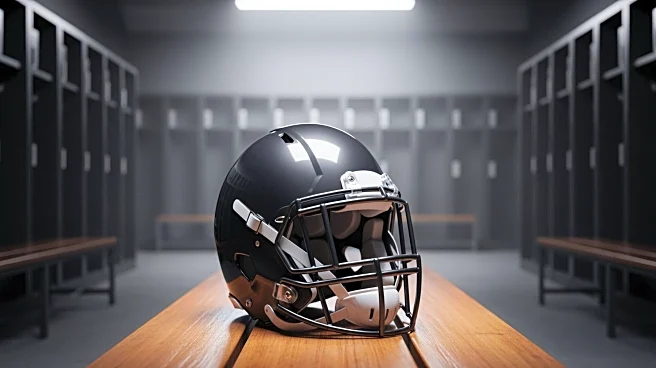What's Happening?
The Arizona State Sun Devils football team achieved a significant victory over the Texas Tech Red Raiders, winning 26-22. This victory marked the first loss of the season for the Red Raiders. The game,
held at Mountain American Stadium, saw a dramatic conclusion with a go-ahead touchdown by Raleek Brown in the final seconds. Following the win, fans rushed the field, causing a goalpost to fall, narrowly missing players and fans. Despite the chaos, no injuries were reported. However, the Big 12 Conference fined Arizona State $50,000 for the incident, emphasizing the importance of safety at sporting events.
Why It's Important?
This victory is crucial for the Arizona State Sun Devils as it improves their record to 5-2 and secures their position as third in the Big 12 Conference. The win also propels them back into the AP top 25 rankings at No. 24. The incident with the goalpost highlights the challenges of managing large crowds at sporting events, raising concerns about safety protocols. The fine imposed by the Big 12 underscores the need for effective event management to prevent potential injuries and ensure the safety of all participants and spectators.
What's Next?
Arizona State is set to host the Houston Cougars, who currently hold a 6-1 record, on October 25. This upcoming game will be crucial for the Sun Devils as they aim to maintain their momentum and improve their standing in the conference. The university and the Big 12 are likely to review and possibly enhance their event management policies to prevent similar incidents in the future, ensuring a safer environment for fans and players alike.
Beyond the Headlines
The incident at the Arizona State game reflects broader issues in sports event management, particularly the balance between fan engagement and safety. As universities and sports organizations continue to attract large crowds, the need for robust safety measures becomes increasingly important. This event may prompt other institutions to reassess their own protocols, potentially leading to industry-wide changes in how sporting events are managed.









